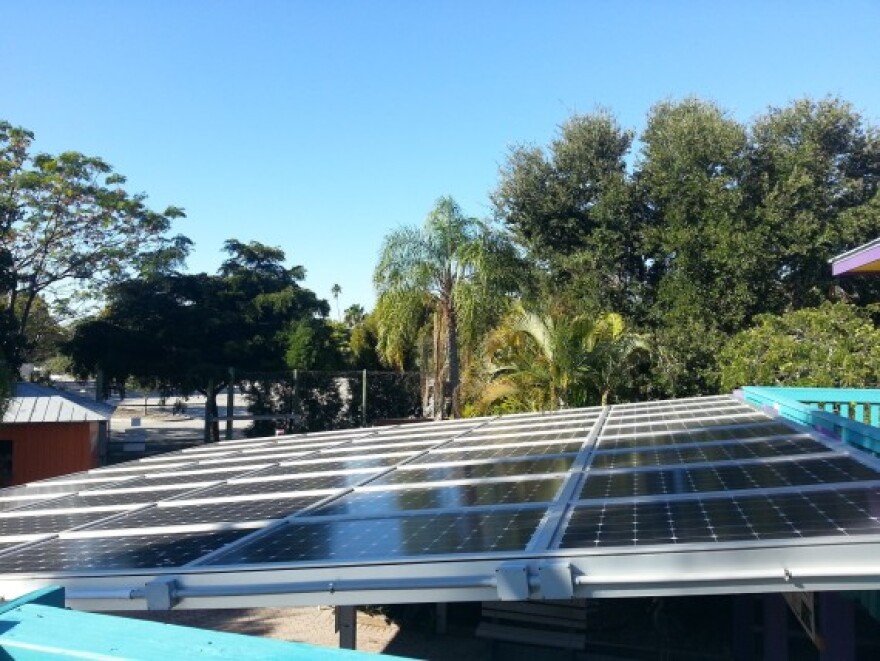Solar power has always been popular in the Sunshine State and as the costs come down, interest in the clean energy alternative is heating up. And so is the political battle for control of the market.
Imagine you go into the voting booth to decide the future of solar power in Florida. This is mostly the information you would have to go on for three proposed constitutional amendments.
First, Floridians for Solar Choice…
“This is not big business, this is mom and pop. This is the young couple, this is the retired couple, this is people who live in their own home for the last 30 years, and who want a better style of living. They need a choice. And the only way for them to have that choice is for us to change the laws in the state of Florida.”
Next, Consumers for Smart Solar…
“Most of us agree, solar energy is an important part of Florida’s future. And in 2016 Florida voters might even find two solar amendments on their ballots. But be warned. There are some big differences between these two ideas…”
Finally, the latest proposal by Republican Senator Jeff Brandes of Sarasota.
“Solar installations being taxed on commercial properties are part of the ad valorem tax, so, the property value of that facility. And then, many properties today don’t want to buy the systems, they simply want to lease them, so we would get rid of that intangibles tax on that leased property.”
Here’s what it means.
Brandes is filing a joint resolution that would allow companies to install solar panels on consumers’ roofs without paying taxes on the equipment. And your property taxes wouldn’t go up because your solar house is worth more.
California-based Solar City, one of the largest solar companies in the nation, says it avoids the Sunshine State because of those taxes. Brandes says he talked to solar companies when he wrote the legislation.
“You know, I think the next 10 or 15 years for Florida, you’re going to see a substantial shift toward solar, and we need to align our laws in preparation for that shift.”
Floridians for Solar Choice wants to strip away an even bigger layer of government. Its plan lets solar companies sell small amounts of power – about enough for a single Wal-Mart –without regulators setting the price or defining territories. Picture a landlord installing solar panels and selling the electricity to tenants.
Although Solar Choice could end up on the same ballot with the Brandes proposal, the philosophies match, says Floridians for Solar Choice organizer Stephen Smith. He stresses that his group has not taken a formal stance.
“We would welcome that because again, I think anything that actually encourages the market is an appropriate thing.
Finally, there’s Consumers for Smart Solar.
Smart Solar mainly addresses what its organizers claim would be problems caused by rival Solar Choice. It protects non-solar customers from having to subsidize backup power for solar customers. It also requires regulators to protect consumer rights.
That’s crucial says Smart Solar organizer Matthew Carter, a former utility regulator.
“Fundamentally, here’s what we’re saying. From a context of consumer protection, we’re saying, there has to be some regulatory oversight. And from the way that I’m reading their language, there has to be a statutory, actually a constitutional, exemption from oversight.”
Critics point out Smart Solars’ proposal would change little and asks voters to fix problems that don’t or wouldn’t exist.
The same big utilities backing Smart Solar are asking the Florida Supreme Court to knock rival Solar Choice off the ballot. Utilities argue Solar Choice would wipe out consumer protections.


